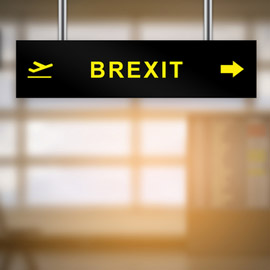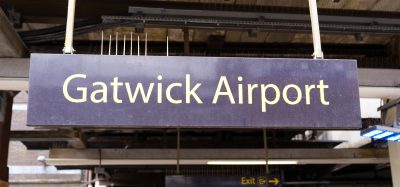Airlines may hope to dodge Brexit risks under Norway
- Like
- Digg
- Del
- Tumblr
- VKontakte
- Buffer
- Love This
- Odnoklassniki
- Meneame
- Blogger
- Amazon
- Yahoo Mail
- Gmail
- AOL
- Newsvine
- HackerNews
- Evernote
- MySpace
- Mail.ru
- Viadeo
- Line
- Comments
- Yummly
- SMS
- Viber
- Telegram
- Subscribe
- Skype
- Facebook Messenger
- Kakao
- LiveJournal
- Yammer
- Edgar
- Fintel
- Mix
- Instapaper
- Copy Link
Posted: 17 June 2016 | Lewis Crofts, Mlex | 14 comments
Lewis Crofts of Mlex explores the hope of airlines to retain access to Europe’s single aviation market and considers the Norwegian option in the event of a Brexit.


Air transport liberalisation is one of the EU’s success stories: Citizens are flying to more places at cheaper rates.
If UK voters opt to leave the union, the government – supported by the likes of British Airways and EasyJet – would likely seek to retain access to Europe’s single aviation market. But rolling over those provisions may not be straightforward, and some predict hikes in fares of up to 30 percent.
“Some predict hikes in fares of up to 30 percent” following Brexit
Prime Minister David Cameron said in October that leaving the EU would increase airfares. Economics consultancy Oxera puts the figure at between 15 percent and 30 percent.
The question is whether the UK could replicate – after a “Brexit” – the benefits of Europe’s drive to liberalise the sector. The solution would be relatively straightforward. Achieving it might not be.
“The shape of the UK aviation sector post Brexit will… be determined by the ability and willingness of the UK government to retain access to the EU aviation market, or to build new relationships with non EU countries, to protect passengers and businesses alike,” law firm Eversheds has written in a research note.
Air liberalisation
What does aviation liberalisation mean? For most people, it’s the emergence of low-cost carriers including Ryanair and EasyJet, and flights for 20 euros ($23) to sunny resorts.
But in regulatory terms it means any airline owned by nationals in one EU country can operate within the bloc without curbs on prices, frequency or capacity. An InterVISTAS study in 2006 found that in four years after liberalisation air traffic doubled.
According to the International Civil Aviation Organization, promotional fares in the EU dropped by 30 percent between 1992 and 2000 in the wake of liberalisation.
“Norway is outside the EU but has access to the single market by signing up to the European Common Aviation Area”
Leaving the EU doesn’t immediately close Europe’s open skies to the UK. Norway is outside the EU but has access to the single market by signing up to the European Common Aviation Area, or ECAA.
Airlines have warned that holidays will be more difficult and that ticket prices will go up if the UK leaves the union following a June 23 referendum. But Leave campaigners stress it would be in the interests of both the UK and the EU’s remaining members for British airspace and airports to remain inside the single market.
If the UK signed up to the ECAA as an independent country and not via its EU membership – in the same vein as Norway – this could be achieved. It would require the UK applying EU laws on aviation: air traffic laws, safety guarantees, airport regulation, for example.
But given these laws are already part and parcel of Britain’s regulatory landscape – without much contention – there is little to suggest this would be a problem.
Rival hubs
The path to signing may not be that simple, however. In the fractious post “Brexit” climate, some other ECAA signatories might be reluctant to grant the UK – with its massive hubs and major carriers such as EasyJet and British Airways – continued access on the same terms.
“Some other ECAA signatories might be reluctant to grant the UK – with its massive hubs and major carriers such as EasyJet and British Airways – continued access on the same terms”
Some speculate that rival hubs in Amsterdam, Paris or Frankfurt will be unwilling to do Heathrow any favours.
Still, signing up to the ECAA would be the quickest and simplest solution for the UK government. All other options involve a web of bilateral deals that would be complicated to negotiate and undesirable to pursue.
Other areas of law also apply to the EU’s aviation sector, notably competition rules and state aid provisions. It’s unclear what status they will hold under a “Brexit” scenario. Nevertheless, the UK would be unlikely to deviate significantly from their present substance.
Opening US skies
Given the UK’s economic and geographic position, it will have a particular interest in ensuring air traffic with the US isn’t disrupted by a “Brexit.”
Currently, the EU-US Open Skies agreement governs this relationship, allowing US carriers to fly to European destinations and vice versa. It’s crucial to the functioning of global airlines alliances such as Oneworld and SkyTeam.
Leaving the EU, the UK would drop out of that accord. It could seek to remain under its terms through its formal ties to the EU – as Norway does – or take the trickier option of negotiating a new bilateral deal with the US.
The EU is also pursuing agreements with other non-European countries to facilitate air travel.
On the 07 June, transport ministers from across the bloc approved the start of such negotiations with Southeast Asian nations, Turkey, Qatar and the United Arab Emirates.
Outside the EU, the UK wouldn’t benefit from these arrangements and would have to negotiate its own separate bilateral terms.
Following Norway’s lead and signing up to the ECAA is clearly the UK’s best option post “Brexit.”
In other industries, Leave campaigners have turned their back on the Norwegian option, saying it entails too many obligations toward EU law and EU standards.
But there seems to be little appetite to shun those regulations in the aviation sector. So Norway could, in this area, provide the solution.


















I think the U.K.’s withdrawal from the European Community would be catastrophic, in the same way in which Scotland’s near-separation from the U.K. would have been catastrophic.
Like it or not, we live in a global world — one in which it’s essential for people to be able to move easily from one country to another. This would only be hindered if the U.K. were to bow out!
It is my opinion,with all due respect to Norway, Great Britain is much more important to the EU and the EU governing body is not going to let the UK just leave. They will treat them similar to Greece and impose strong sanctions as a warning to anyone else with ideas of leaving. Air restrictions would seem to me a likely action should Great Britain make the mistake of leaving. It will be very complex and harmful all around if the British people decide to exit. We here in North America will not be immune form the fallout I fear.
Aviation agreements between nations are always reciprocal. Airlines from all over the world fly into Europe today based on mutual agreements that also benefit European Airlines. There is no reason to belive that the EU would treat rhe UK differently or that the UK would treat the EU differently.
The risks of staying in far outweigh the risks of leaving. Have you ever looked at the trade deficit we have in the single market? In 2014, the UK_EU deficit in goods was £127 BILLION. That is £2000 pounds for every man woman and child in the UK; and it is getting worse.
Give me the uncertainty of being able to manage ourselves rather thaan the certainty of a spiral of decline in the EU.
My opinion IS Great Britain is much more important to stay in EU. Air restrictions would seem to me a likely action should Great Britain make the mistake of leaving. I think it will be very complex and harmful all around if the British people decide to exit.
We are on preparation of a new dangerous situation, we will see where we go next 5 years! the EU is not more what it was, if England leave we will have heavy changes in EU soon!
Good luck to all of us.
In my point of view, being out the EU does not mean total exclusion from revolutionary EU projects. Only cross bundary coloraborations will fully empower future EU travel models.
I’m voting to stay in the EU and you can’t convince not to.
British decisions were serious they often proved in the past. This time it is something knew which is seperating the generations interests for a better living. The loss of global cohesion is hitting hard the invisible cords of the commonwealth. This is cutting the hopes of the british youth and younger professionals being aware of the loss of former privileges in an increasing tough and national competition in all emerging countries. For the young leaders the european IOT and 4.0 leadership is an attractive vision and vibrant base for better living instead to defend lost traditions in former colonies. The elderly generation having paid a high price for this relations in hundreds of years feels to fight for it in an old leadership role. Both is very british and a country is to be praised to have these characters – but in the end the future is for the young and not for the old, and the younger generation wants no Brexit – do parents risks to decide against the kids? In Germany we did it twice and it was wrong.
Therfore I thing some young voters coming in the last minutes turn the game and referendum.
Leaving EU will have negative impact on UK Airports as neighbouring countries will try to make their Airports lucrative as well.Hubbing operations at Gatwick will have negative impact as well,as feeder spoke leg will work out costly.
Bad idea!
with BREXIT poll to leave,will be the same situation as of divorce and relationship will be as of divorced and divorcee
UK aviation industry may not be enjoying the same privileges but will loose liberty of free sky but will be having fair skies
The consequences of a Brexit on air commercial transport will depend mainly on the UE attitude. If they will behave in a punitive manner (i.e. to discourage other countries to make the same step) the consequences can be very heavy. Otherwise (i.e. if UE will leave an “open door”) probably nothing will change. First comments seem to support the first hypothesis. That’s why Ryanair and other carriers support the “remain” option.
Brexit would have bad consequences for Britain and Europe. In aviation industry:
Britain is involved in Airbus. The British par o fit will loose market while those share will be taken over by other investors.
New arrangements will need to be negotiated to enable the British access to SES and to enable European air traffic over British airspace, both directly affecting air transportation towards and from the Americas.
A lot of high qualified staff will be forced to leave the British aviation industry, since they are there based on the free EU labor force movement agreements.
British exports of products and services to Europe will be severely affected.
Conclusion: Looking for popularity some British politicians ignored reality. Isolation was never a success!